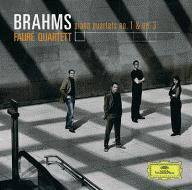Five:15 by Scottish Opera
Occasionally something new appears in opera, and not just a new production of the standard repertory, or even something new but someone establish. Scottish Opera, under the direction of Alex Reedijix, produced a series of five operas, all fifteen minutes in length, written by composers and librettists who come from backgrounds other than opera - which included Craig Armstrong (numerous film scores), Ian Rankin and Ron Butlin (notable authors).
The Telegraph gave their review. I can't say I agree with all of Ruperts comments, but certainly I agree that Gesualdo was the highlight of the evening's performance. This portion of the programme was a collaboration of Craig Armstrong and Ian Rankin and really played to Craig's strengths. The music was powerful, lending both atmosphere and melody to the piece. Rhythms played a strong roll in the opening scene, and yet at other times completely transparent, allowing the emotions of the words to come through. The chamber ensemble was used to good effect bringing out a variety of tonal colours not noticed in the other pieces. The only real critique was it was too short. It could have been a full length opera and my hope is, Scottish Opera will take it this next step.
I also agree with Rupert in questioning the lack of Scottish sounds, particularly in the The Queen of Goven. The sarod music was lovely, but as the story takes place in Glasgow, the lack of anything Scottish sounding gave the feeling this story really was taking place in India. There could have been a blending of music and cultures, but there wasn't. IMHO, the disappointment of the event.
Dream Angus could have used a Scottish feel to it as well, but overall the music was fun. I enjoyed the performance as a result. There was a fair amount of talking in the production which was odd in my opinion. This was also a problem with The Perfect Woman. In both pieces there wasn't a clear reason for the spoken dialog. The music in the later was also a bit cartoonish. It's obvious that's what the composer was going for, but it consistent through the piece, ie., it started comical, but didn't retain it and certainly didn't have that feel in the end. So, musically The Perfect Woman felt unpolished.
The first piece performed was The King's Conjecture about King James IV of Scotland. Again, I don't understand why there wasn't something Scottish about the music. That said, the ending trio of this piece was one of the most moving of the performance, musically building a sense of tension and anxiety - and yet hope, that brought tears to a number of people in the audience. Well done, for only having 15 mins to get us to that point.
As I work on the music for my own premier of sketches from It Must Be Fate, I look back at this performance of Five:15 by Scottish Opera with an eye for improving my own music. What did they do right and how can I incorporate that into my music? What did not succeed, and how can I avoid those same pitfalls?
Writing music is a never ending process, striving for something new and yet retaining enough of what works to ensure what's new works as well. The storyline isn't Scottish, so not having a Scottish feel is appropriate. But it is Greek, so (IMHO) there should be some homage paid to the modes in music - and I am. It is also a modern talk - the Fates as they are today - so there needs to be a modern feel to the music (I'm not talking atonality, but rather Urban). However, it is was just Urban music than it wouldn't retain the classical nature of these godesses - so this needs to be blended with the modes and more classical music to bring a depth to the characters.
I will be very interested to see well how my own take on music's role in telling a story plays to an audience.

Comments